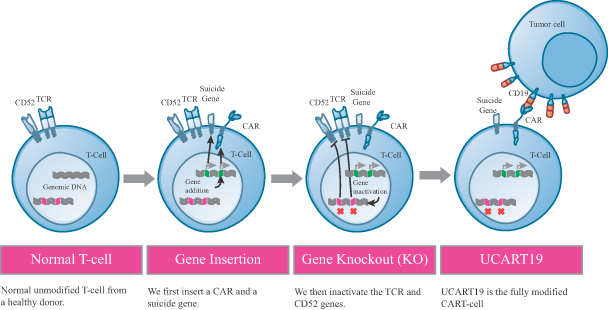
Cellectis presents way to safer CAR-Ts
Researchers at French-US allogeneic CAR-T cell developer Cellectis SA have designed an engineered CAR-T cell that secretes IL-12 upon contact with tumour cells.
Discussion around the tumor microenvironment has become a popular topic in the CAR T-cell space, and with recent advancements in gene editing technologies, especially TALEN®, it is now possible to manipulate the way a T-cell regulates itself to adapt to its environment, said Dr. Philippe Duchateau, Ph.D., Chief Scientific Officer at Cellectis. The company develops gene-edited allogeneic CAR T-cells (UCART), that might cause no or reduced dosing of immunosuppressants.
German Rheincell GmbH, however, is preparing to reduce the need for immunosuppression after cell transplantation without any genetic engineering. Two years after its launch, the start-up company has started to build a GMP-compliant iPSC (induced pluripotent stem cell) master cell bank with homozygous HLA antigens that match most acceptors and from which any cell type needed for cell therapies can be derived.



 adobe.stock.com - ipopba
adobe.stock.com - ipopba BioDlink
BioDlink